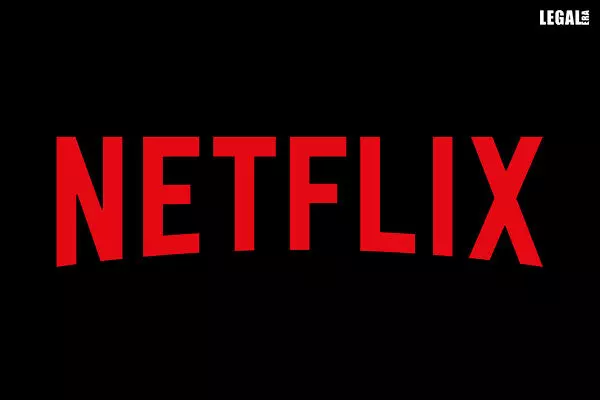- Home
- News
- Articles+
- Aerospace
- AI
- Agriculture
- Alternate Dispute Resolution
- Arbitration & Mediation
- Banking and Finance
- Bankruptcy
- Book Review
- Bribery & Corruption
- Commercial Litigation
- Competition Law
- Conference Reports
- Consumer Products
- Contract
- Corporate Governance
- Corporate Law
- Covid-19
- Cryptocurrency
- Cybersecurity
- Data Protection
- Defence
- Digital Economy
- E-commerce
- Employment Law
- Energy and Natural Resources
- Entertainment and Sports Law
- Environmental Law
- ESG
- FDI
- Food and Beverage
- Gaming
- Health Care
- IBC Diaries
- In Focus
- Inclusion & Diversity
- Insurance Law
- Intellectual Property
- International Law
- IP & Tech Era
- Know the Law
- Labour Laws
- Law & Policy and Regulation
- Litigation
- Litigation Funding
- Manufacturing
- Mergers & Acquisitions
- NFTs
- Privacy
- Private Equity
- Project Finance
- Real Estate
- Risk and Compliance
- Student Corner
- Take On Board
- Tax
- Technology Media and Telecom
- Tributes
- Viewpoint
- Zoom In
- Law Firms
- In-House
- Rankings
- E-Magazine
- Legal Era TV
- Events
- News
- Articles
- Aerospace
- AI
- Agriculture
- Alternate Dispute Resolution
- Arbitration & Mediation
- Banking and Finance
- Bankruptcy
- Book Review
- Bribery & Corruption
- Commercial Litigation
- Competition Law
- Conference Reports
- Consumer Products
- Contract
- Corporate Governance
- Corporate Law
- Covid-19
- Cryptocurrency
- Cybersecurity
- Data Protection
- Defence
- Digital Economy
- E-commerce
- Employment Law
- Energy and Natural Resources
- Entertainment and Sports Law
- Environmental Law
- ESG
- FDI
- Food and Beverage
- Gaming
- Health Care
- IBC Diaries
- In Focus
- Inclusion & Diversity
- Insurance Law
- Intellectual Property
- International Law
- IP & Tech Era
- Know the Law
- Labour Laws
- Law & Policy and Regulation
- Litigation
- Litigation Funding
- Manufacturing
- Mergers & Acquisitions
- NFTs
- Privacy
- Private Equity
- Project Finance
- Real Estate
- Risk and Compliance
- Student Corner
- Take On Board
- Tax
- Technology Media and Telecom
- Tributes
- Viewpoint
- Zoom In
- Law Firms
- In-House
- Rankings
- E-Magazine
- Legal Era TV
- Events
Madras High Court Dismisses Netflix's Plea In Dhanush’s Copyright Suit Against Nayanthara

Madras High Court Dismisses Netflix's Plea in Dhanush’s Copyright Suit Against Nayanthara
The Madras High Court on Tuesday dismissed an application filed by Netflix seeking to reject Tamil superstar Dhanush’s copyright infringement suit against actress Nayanthara. The dispute revolves around the alleged unauthorized use of visuals from the Tamil movie Naanum Rowdy Dhaan in the Netflix docu-drama Nayanthara: Beyond the Fairytale.
Justice Abdul Quddhose also dismissed a separate application filed by Los Gatos Production Services India LLP, which manages Netflix's content investments in India. The company sought to revoke the court’s earlier leave granted to Wunderbar Films, owned by Dhanush, to file the suit in Chennai, arguing that the proceedings should take place in Mumbai. However, the court ruled in favor of senior counsel P.S. Raman, assisted by Gautam S. Raman, stating that the applications lacked merit.
The court has scheduled a hearing on February 5 to decide on an interim relief sought by Wunderbar Films regarding the alleged unauthorized use of visuals from Naanum Rowdy Dhaan in the Netflix documentary.
In his affidavit, Sreyas Srinivasan, director of Wunderbar Films, asserted that neither Nayanthara nor Netflix had the right to use any footage, including behind-the-scenes (BTS) visuals from the 2015 film, without prior permission. He emphasized that Nayanthara had signed an artist agreement with Wunderbar Films on August 27, 2014, transferring all rights related to her performance, likeness, name, and voice in connection with the movie to the production house in perpetuity.
Wunderbar Films stated that upon discovering the alleged unauthorized use of BTS visuals in the docu-drama’s trailer, a legal notice was sent to Netflix on November 9, 2024. In response, Netflix and Tarc Studios LLP, the docu-drama’s producers, argued on November 11, 2024, that the visuals were personal in nature and had not been shot by persons commissioned by Wunderbar Films.
The controversy gained public attention just days before the documentary’s scheduled releasen on November 18, 2024. On November 16, 2024, Nayanthara addressed an open letter to Dhanush on social media, stating that she had repeatedly sought a Non Objection Certificate (NOC) from Wunderbar Films for two years but had not received one.
She explained that the documentary featured only a few seconds of visuals and songs from Naanum Rowdy Dhaan as the film marked the beginning of her romantic relationship with her now-husband, director Vignesh Shivan. Nayanthara accused Dhanush of holding a personal grudge against her and Shivan, citing that he had sent her a legal notice demanding ₹10 crore in damages after the release of the trailer. She defended the inclusion of BTS footage, claiming only three seconds of content shot on personal devices had been used, making the legal action unwarranted.


